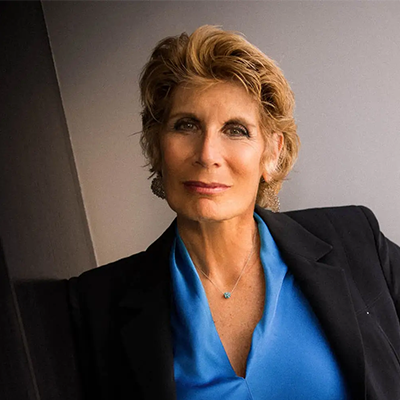
Executives:
It's Time to Lose the Guilt
"I FEEL GUILTY ASKING MY EXECUTIVE ASSISTANT TO DO THINGS FOR ME"
This was an unexpected and surprising statement coming from three seasoned executives at different companies. Guilty? About what? As much as I know about the partnerships between executives and assistants, I had not heard much about guilt. I asked these executives if they thought that other executives felt guilty too? They thought about my question and each replied, yes, they think that others do too.
One of the leaders shared that his wife even said, “Why are you asking Beth (the EA) to do XYZ for you? Why don’t you just do it yourself?” Uh oh, more guilt.
As the workplace continues to undergo a seismic shift in the aftershocks of the pandemic, there are a wide array of feelings being experienced by leaders and executive assistants alike. Anxiety, stress, fear, pressure, disillusionment, and loneliness are just a few. Now guilt is apparently part of the messy workplace stew.
Defined, guilt is about “feeling shame or regret as a result of bad conduct.” As a consequence of guilt, leaders report that they feel conflicted about being worthy and deserving of support by an assistant. After all, this is the person who has been specifically hired to fulfill these responsibilities.
To feeling guilty, I say please stop.
The truth is that leaders can be two to three times more effective, in their work and in life, by utilizing the talents and skills of a professional executive assistant. Experienced and trained executive assistants function as proactive business partners who are ready, willing, and more than able to support leaders to maximize productivity, partnerships, and profits with a minimum of stress, drama, and guilt.
Simply put, it’s time to lose the guilt once and for all. Here’s why.
As leadership expert and Founder of COO Alliance, Cameron Herold says, “If you don’t have an assistant, you are one. I’ve had my Executive Assistant Meridith with me for almost six years now. The more I delegate to her, the faster my company grows. We’re now at the stage we’re ready to find her a fractional EA for her, to offload some of the more truly admin work, so she can continue handling larger projects for me. I used to feel guilt delegating tasks to assistants, but I don’t anymore.”
Disruption at a whole new level
The reality in the volatile workplace of 2022 is that company leaders are challenged in new and unprecedented ways. The “way things used to be” are dimming in memory. New workplace rules about going into the physical office, for example, have been created on a day to day, figuring it out as we go fashion. The stakes are high as leaders feel as fragmented and disoriented as the staff.
The Great Resignation came on the heels of a pandemic that followed no rules or schedule. When the workplace morphed in a matter of days in March 2020, we all hoped it would be temporary, and it has turned out to be quite the opposite.
No leader was ever trained to manage a situation like this one. It follows that leaders need support more than ever.
Executive assistants well understand bringing order to chaotic situations because it is built into their job descriptions and who they are. That’s what they do. In a time when leaders can easily be losing sleep over any number of challenges, executive assistants can be a leader’s secret weapon to getting things done and still have a life. Executive assistants are driven by being the problem-solvers and having their talents leveraged. In fact, leaders need to know that executive assistants resign from positions when this is not the case.
What is also true is that the administrative staff of the world fill a unique and often misunderstood role. Theirs is the only job, by definition, that relies exclusively on the people they support for their very existence. The partnerships then, between leaders and executive assistants, are also unique and specific to them. It’s not one size fits all. Since most leaders receive little to no training on what assistants can be expected to do, made even more muddy since 2020, it’s no mystery why there is confusion.
But what about the guilt, and how can leaders lose it? Whether the guilt comes from not being clear on what assistants do or the false belief that it is easier to do it yourself, or fear of managing a remote team, here is my advice to leaders for losing the guilt, once and for all.
ASk
Talk with your executive assistant to ask about what s/he does and the other responsibilities s/he is interested in/capable of doing in response to the current needs rather than an obsolete job description. Make it safe to have a candid conversation together about the ways each of your roles can be better leveraged. My promise to leaders is that your executive assistants will have opinions on these questions if they are asked.
24/165
Time. Take a fresh and hard look at your 24 hours each day and your 168 hours each week. Examine how you are really using your precious time and determine what tasks are better performed by your executive assistant. Any hours that your executive assistant saves you is time you can be focused on the work that only you can do (and why you are in your role), not to mention time with your family, going to the gym, calling your mom, playing golf, or just having time to think.
money
What is your time worth? Some executives tell me that to do everything themselves saves them money. I would argue that is short-sighted thinking. Doug Conant, former CEO of Campbell Soup, calls an executive assistant’s salary “a cheap date who is worth their weight in gold.” He also said that he tied his executive assistant’s compensation to his own because her work was integral to his.
the bottom line
Feeling guilty about asking your assistant to do their job does not serve leaders or organizations. Utilizing and leveraging an assistant is a smart business decision that has a direct impact on the bottom line. I advise leaders to delegate the tasks that you are not good at, don’t like to do, and are not the best use of your time. Plus, assistants can do these things better anyway.
Henry Ford famously said, “Cut your own wood, and it will warm you twice.” That may be true, but I would respectfully ask Mr. Ford if cutting his own wood is the best use of his time? My sincere hope is that he would not feel guilt about delegating this task to others. In the current workplace, total self-sufficiency is not always a virtue.

Bonnie Low-Kramen serves as an Educational Director to Private Service Alliance’s Advisory Board of Directors. She is an accomplished author, educator, and TEDx Speaker. Her latest book, Staff Matters, addresses many issues found in today’s work culture.
This article was first published in CEO World Magazine, March 9, 2022.



